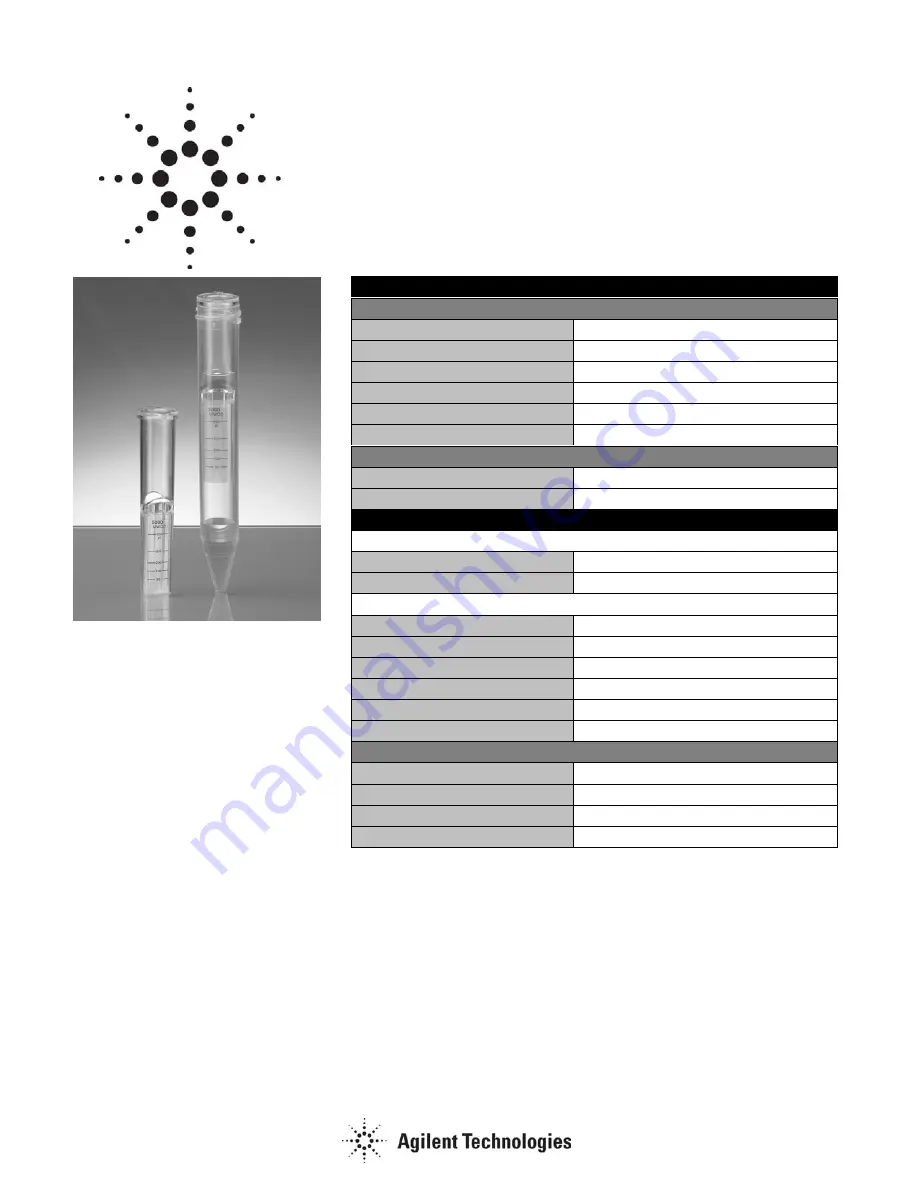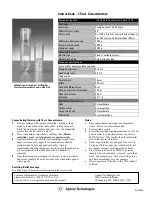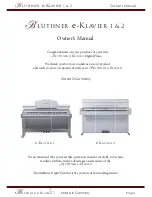
5,000 Molecular Weight Cut-Off (MWCO)
4 mL Spin Concentrator, Part No. 5185-5991
5185-5991 5 KDa MWCO 4 mL
5188-2798 5 KDa MWCO 15 mL
5188-5201 30 KDa MWCO 4 mL
5188-2799 30 KDa MWCO 15 mL
5188-5202 50 KDa MWCO 4 mL
5188-2800 50 KDa MWCO 15 mL
Agilent Spin Concentrators for Proteins
Instructions – 4 mL Concentrators
Equipment required
4 mL Spin Concentrators, pack of 25
Centrifuge
Rotor type
Swing bucket or Fixed angle
Minimum rotor angle
25°
Rotor cavity
To fit 15 mL (17 mm) conical bottom tubes
Minimum effective speed
2,000 g
Recommended speed
5,000 g
Maximum speed
7,500 g
Concentrate recovery
Pipette type
Fixed or variable volume
Recommended tip
Thin gel loader type
Technical specifications
Concentrator sample volume capacity
Swing bucket rotor
1-4 mL
Fixed angle rotor
1-4 mL
Dimensions
Total Length
122 mm
Width
17 mm
Active Membrane Area
2.0 cm
2
Hold-up volume of membrane
<10 µL
Dead stop volume
20 µL
pH range
pH 1 – 9
Materials of construction
Body
Polycarbonate
Filtrate vessel
Polypropylene
Concentrator cap
Polycarbonate
Membrane
Polyethersulfone
Concentrating Proteins with 4 mL Concentrators:
1
Fill concentrator with sample within the working volume
capacity range noted in the table above (ensure that the hinged
lid is fully seated).
2
Insert assembled concentrator into centrifuge (when fixed
angle rotors are used, angle the concentrators so that the
printed windows face upwards/outwards).
3
Centrifuge at recommended speeds, taking care not to exceed
the maximum g force indicated in the table above (20 minutes
at 7,500 g is recommended for 30
´
concentration of 4 mL at
10
°
C).
4
Once the desired concentration is achieved, remove assembly
and recover sample from the bottom of the concentrate pocket
with a pipette.
Desalting/Buffer Exchange
1
Concentrate sample to desired level or at least
5
´
.
2
Empty filtrate container.
3
Refill concentrator with an appropriate buffer.
4
Concentrate the sample again and repeat the
process until the concentration of the
contaminating species is sufficiently reduced.
Typically three wash cycles will remove 99% of
initial salt content.
See
Notes
on next page.




















